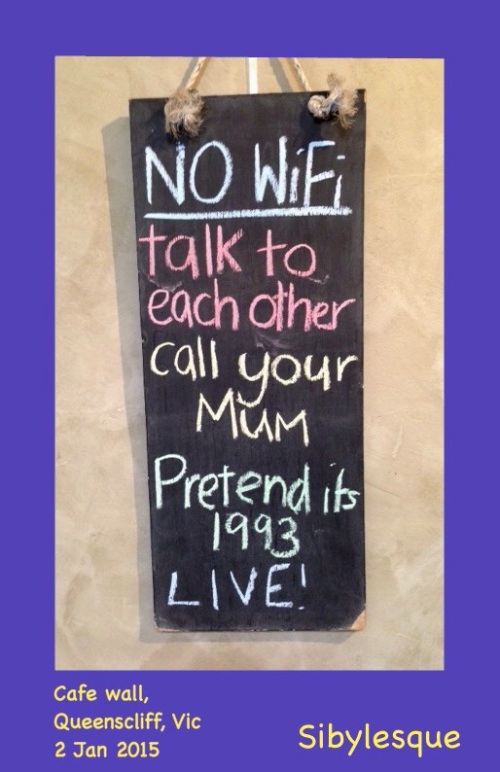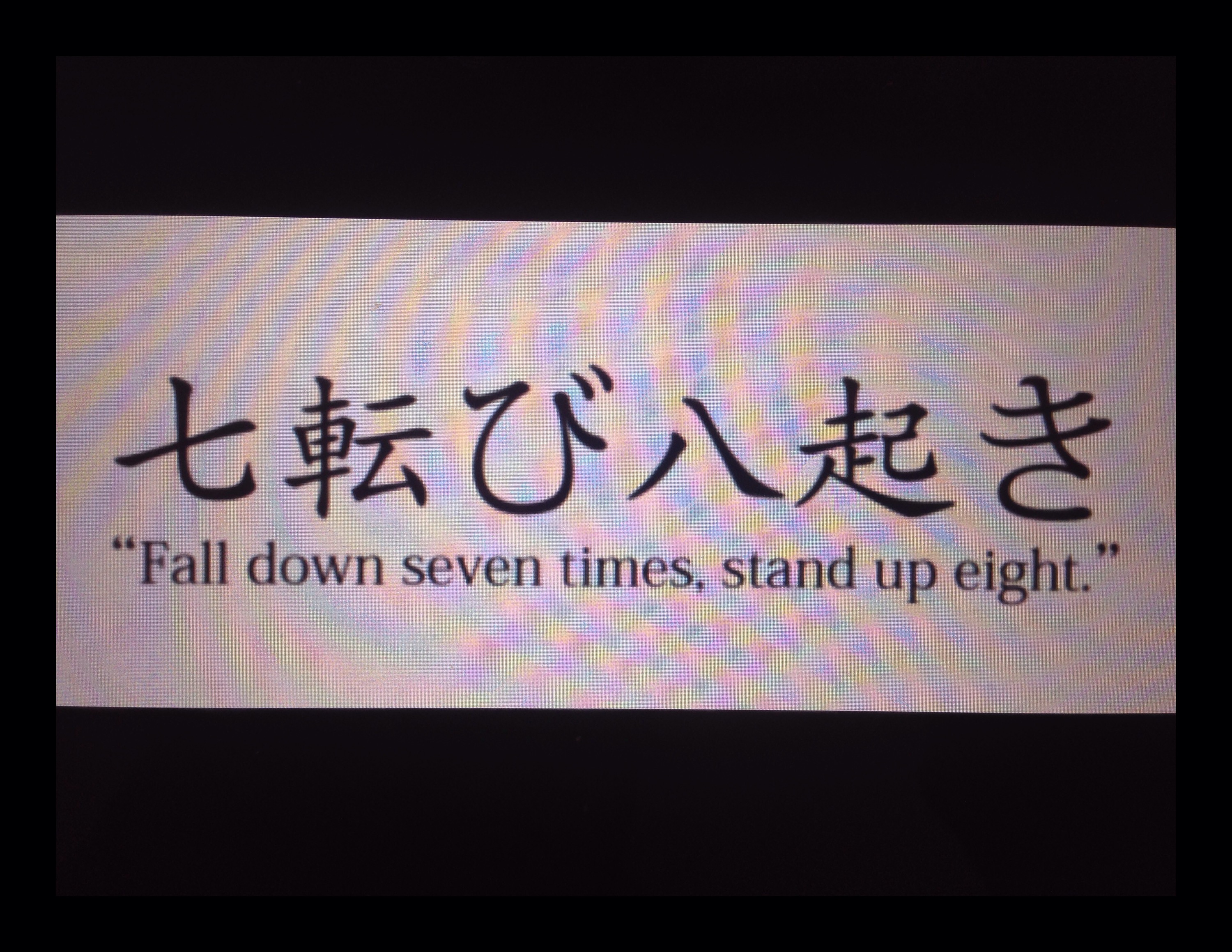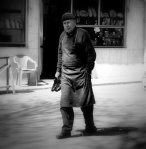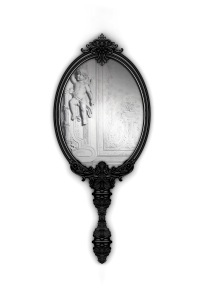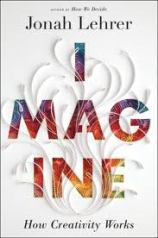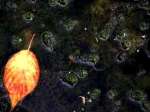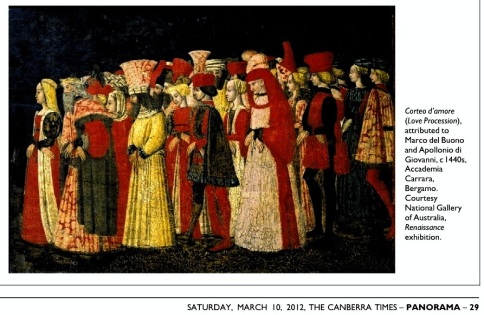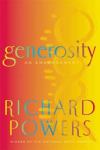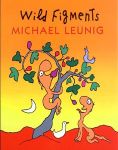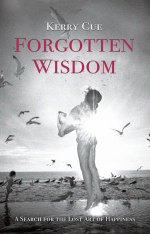Posted in Uncategorized | Leave a Comment »
As Joyce Freedman shows in this delightful poem, sometimes, to women, men appear to be inexplicably simply creatures.
…………………………………………………………………….
Shopping
Joyce Freedman
his needs are simple—
brown shoes like the last pair
and corduroy trousers,
brown.
We buy his five-minute shoes
and ten-minute trousers.
Done, he says, let’s go home.
No, that’s not how it’s done
I want to reply
but I’ve lost the power of speech.
I’m missing the leisurely coffee
where girlfriends gather to talk about dresses,
the feel of textures, the colour of lipsticks
and shoes, glorious shoes
(not brown).
Meekly I follow him, my willpower crushed
by his whistling. I stop to grab a lipstick
that makes me look anaemic.
At home, he waltzes around in
his new clothes. I want to break
his velvety legs and jump on his toes.
……………………………………………………………………………………

Joyce Freedman is an Aussie poet whose poems have been published in Quadrant magazine among others.
Image by airamg
Posted in Joyce Freedman, the Battle of the Chromosomes | Tagged are men simple creatures?, Aussie Poets, female, Joyce Freedman Poet, male, men vs women, new shoes, poem, shopping, venus vs mars | 1 Comment »
In this raw and honest poem Suzanne Edgar captures that moment when reality walks all over the assumed image of the imagined-self.
…………………………………………………………………
GONE MISSING
Suzanne Edgar
……………………………………………….
in a laughing, drinking crowd
telling anecdotes galore
mixed up with hissy gossip
and frequent risqué jokes.
When I did a mirror check,
I received a frightful shock.
Someone had taken my face!
I’d come there brushed and sleek
with lips of deepest pink,
my shining auburn hair
framed eyes like summer pools.
The effect was rather youthful,
I’d supposed when I arrived.
This was not the face
that met me in the glass.
Where had my image gone?
The cheeks I saw were red,
the bloodshot eyes were smudged
and my hair had lost its sheen.
I looked about in panic,
there was no one else in view,
could it have been borrowed
or taken by mistake?
That face I liked to wear
has never been returned.
…………………………………………………………………………
Suzanne Edgar’s book The Painted Lady is available @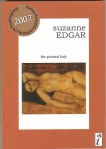
the bookshop of the National Library of Aust and the
Paperchain Bookstore 34 Franklin St Manuka ACT.
Read extract here.
Posted in aging, Suzanne Edgar | Tagged a poem about aging, Aging, Australian poet, Gone Missing, growing old, poem about aging, poem about appearance, poem about body image, poem about wrinkles, reflections on life, reflectionsin a mirror, Suzanne Edgar, thoughts about | Leave a Comment »
Sarah Kay radiates the essence of youth, intellect and inspiration. This poem is also something of an antidote to Lily Myers’ Shrinking Woman poem in the next post.
…………………………………………………………………………
……………………………………………………………..
See her full Ted Lecture here.
……………………………………………………………………………………..
Poem B
Sarah Kay
If I should have a daughter, instead of “Mom,” she’s going to call me, “Point B.” Because that way she knows that no matter what happens, at least she can always find her way to me.
And I’m going to paint the solar systems on the backs of her hands, so she has to learn the entire universe before she can say, “Oh, I know that like the back of my hand.” And she’s going to learn that this life will hit you, hard, in the face, wait for you to get back up just so it can kick you in the stomach. But getting the wind knocked out of you is the only way to remind your lungs how much they like the taste of air.
There is hurt, here, that cannot be fixed by band-aids or poetry, so the first time she realizes that Wonder Woman isn’t coming, I’ll make sure she knows she doesn’t have to wear the cape all by herself. Because no matter how wide you stretch your fingers, your hands will always be too small to catch all the pain you want to heal. Believe me, I’ve tried.
“And baby,” I’ll tell her, “Don’t keep your nose up in the air like that. I know that trick. I’ve done it a million times. You’re just smelling for smoke so you can follow the trail back to a burning house, so you can find the boy who lost everything in the fire to see if you can save him. Or else, find the boy who lit the fire in the first place, to see if you can change him.” But I know she will anyway, so instead, I’ll always keep an extra supply of chocolate and rainboots nearby. Because there’s no heartbreak that chocolate can’t fix.
Okay, there’s a few heartbreaks that chocolate can’t fix. But that’s what the rainboots are for. Because rain will wash away everything if you let it.
I want her to look at the world through the underside of a glass bottom boat. To look through a microscope at the galaxies that exist on the pinpoint of a human mind. Because that’s the way my mom taught me. That there’ll be days like this, “There’ll be days like this,” my mama said. When you open your hands to catch and wind up with only blisters and bruises. When you step out of the phone booth and try to fly, and the very people you want to save are the ones standing on your cape. When your boots will fill with rain, and you’ll be up to your knees in disappointment, and those are the very days you have all the more reason to say, “Thank you.” Because there’s nothing more beautiful than the way the ocean refuses to stop kissing the shore line, no matter how many times it’s sent away.
You will put the “wind” in “winsome… lose some.” You will put the “star” in “starting over… and over…” And no matter how many land mines erupt in a minute, be sure your mind lands on the beauty of this funny place called life.
And yes, on a scale from one to over-trusting, I am pretty damn naive. But I want her to know that this world is made out of sugar. It can crumble so easily, but don’t be afraid to stick your tongue out and taste it.
“Baby,” I’ll tell her, “Remember, your mama is a worrier, and your papa is a warrior, and you are the girl with small hands and big eyes who never stops asking for more. Remember that good things come in threes, and so do bad things, and always apologize when you’ve done something wrong. But don’t you EVER apologize for the way your eyes refuse to stop shining. Your voice is small, but don’t ever stop singing. And when they finally hand you heartache, when they slip war and hatred under your door and offer you handouts on street corners of cynicism and defeat, you tell them that they really ought to meet your mother.”
Posted in Dazzling & Inspiring, Sarah Kay | Tagged a poem to inspire you, All girls should see this, awesome poem, best poetry, fabulous poem about life, for young women, If I should have a daughter, inspiration, inspirational poem, inspiring poem, inspiring poem about life, Poem B, sarah Kay, Ted Lecture | Leave a Comment »
This brutally honest poem by Lily Myers explores the behaviours we unintentionally absorb from family members.
It has gone viral.
……………………………………………………………………………
…………………………………………………………………………….
Shrinking Woman
Lily Myers
Across from me at the kitchen table, my mother smiles over red wine that she drinks out of a measuring glass.
She says she doesn’t deprive herself,
but I’ve learned to find nuance in every movement of her fork.
In every crinkle in her brow as she offers me the uneaten pieces on her plate.
I’ve realized she only eats dinner when I suggest it.
I wonder what she does when I’m not there to do so.
Maybe this is why my house feels bigger each time I return; it’s proportional.
As she shrinks the space around her seems increasingly vast.
She wanes while my father waxes. His stomach has grown round with wine, late nights, oysters, poetry. A new girlfriend who was overweight as a teenager, but my dad reports that now she’s “crazy about fruit.”
It was the same with his parents;
as my grandmother became frail and angular her husband swelled to red round cheeks, round stomach,
and I wonder if my lineage is one of women shrinking,
making space for the entrance of men into their lives,
not knowing how to fill it back up once they leave.
I have been taught accommodation.
My brother never thinks before he speaks.
I have been taught to filter.
“How can anyone have a relationship to food?” he asks, laughing, as I eat the black bean soup I chose for its lack of carbs.
I want to say: we come from difference, Jonas,
you have been taught to grow out,
I have been taught to grow in.
You learned from our father how to emit, how to produce, to roll each thought off your tongue with confidence, you used to lose your voice every other week from shouting so much.
I learned to absorb.
I took lessons from our mother in creating space around myself.
I learned to read the knots in her forehead while the guys went out for oysters,
and I never meant to replicate her, but
spend enough time sitting across from someone and you pick up their habits-
that’s why women in my family have been shrinking for decades.
We all learned it from each other, the way each generation taught the next how to knit,
weaving silence in between the threads
which I can still feel as I walk through this ever-growing house,
skin itching,
picking up all the habits my mother has unwittingly dropped like bits of crumpled paper from her pocket on her countless trips from bedroom to kitchen to bedroom again.
Nights I hear her creep down to eat plain yogurt in the dark, a fugitive stealing calories to which she does not feel entitled.
Deciding how many bites is too many.
How much space she deserves to occupy.
Watching the struggle I either mimic or hate her,
And I don’t want to do either anymore,
but the burden of this house has followed me across the country.
I asked five questions in genetics class today and all of them started with the word “sorry.”
I don’t know the requirements for the sociology major because I spent the entire meeting deciding whether or not I could have another piece of pizza,
a circular obsession I never wanted, but
inheritance is accidental,
still staring at me with wine-soaked lips from across the kitchen table.
Posted in ANOREXIA, Escaping the Family, Lily Myers | Tagged anorexia, attitudes, children, family, habits, Lily Myer, parents, Shrinking woman, things we learn, what we learn from family, what you might learn from your mother | Leave a Comment »
I’ve just read Imagine: How Creativity Works by Jonah Lehrer, which suggests that creativity can be stimulated, rather than handicapped, by highly structured formats.
‘ … look at poets, who often rely on literary forms with strict requirements, such as haikus and sonnets. At first glance, this writing method makes little sense, since the creative act then becomes much more difficult. Instead of composing freely, poets frustrate themselves with structural constraints.
But that is precisely the point. Unless poets are stumped by the form, unless they are forced to look beyond the obvious associations, they’ll never invent an original line. They’ll be stuck with clichés and conventions, with predictable adjectives and boring verbs. And this is why poetic forms are so important. When a poet needs to find a rhyming word with exactly three syllables or an adjective that fits an iambic scheme, he ends up uncovering all sorts of unexpected connections; the difficulty of the task accelerates the insight process. ‘
The following two posts embrace the constraints of the 5-7-5 syllable Hiaku and then 14 line, 10 syllable, iambic pentameter – Google it- sonnet.
The following Hiakus are by Canberra poet, Ralph Sedgley.
.
.
On Julbup water
leave converging trails, sparkling
in the winter light.
.
.
.
Through outgoing tide
a heron stares intently;
alder leaves drift by.
.
.
.
Pelican lovers
slowly spiraling upwards,
soaring above the city heat.
Posted in Awesome Aussie Poets, being a poet | Tagged Creativity in Poetry, Duck Haiku, Haiku form, Haiku magic, Haiku Ralph Sedgley, How many Syllables in a Haiku, How poets create poems, Imagine Jonah Lehrer, Japanese Haiku, Pelican Hiaku, Write a haiku | Leave a Comment »
Here is a sonnet, Corteo D’Amore, by award winning Canberra poet, Suzanne Edgar, that appeared in Panorama, Saturday, 10 Mar 2012, The Canberra Times.
The poem was written to accompany the picture in the National Gallery.
This sonnet is married to the picture.
It could not exist without it, yet the picture comes to life because of it.
Suzanne Edgar’s book The Painted Lady is available @
the bookshop of the National Library of Aust and the
Paperchain Bookstore 34 Franklin St Manuka ACT.
Posted in Awesome Aussie Poets, Being a father, connecting, Suzanne Edgar | Tagged Corteo d'Amore, Poem about a marriage, Sonnet Magic, Suzanne Edgar Poem Panorama, Suzanne Edgar Poet | 3 Comments »
When a poet writes an essay they cannot help themselves. Trapped within the essay are literary jewels, poems of exquisite beauty crafted and polished by the poet’s word-smithing skills. Michael Leunig is a poet so it is not surprising that his essay ‘Sleeping in on Doomsday’ from the Good Weekend, The Age (Sat 28th Nov 2009) had a poetic sensuality. This embedded poem in the essay addresses the hopes Leunig has for his children, that they will not be tethered to the family tree but rather free to fly. free as they wish. Moreover, it is within all our capabilities to escape the gravitational pull of our origins.
…no shares in any great cultural franchise
with stories of tragedy and triumph,
and don’t have much in the way of extended family.
None of this to enshrine and uphold.
They are unadorned earthlings.
Human nature is their story.
The spirit of the country runs out of the earth
And the air and into their bodies like a mystery.
This is their inheritance.
It is no virtue, no deficiency and no advantage;
This is simply their lot.
I see them asleep at night, these beautiful earthlings;
their faces still so glowing and open and young.
There are many of them in this world and in this land.
When they awaken they will create their own way.
Michael Leunig
Michael Leunig is a Melbourne cartoonist, artist and poet. His short and often melancholic poems are published in a number of Australian newspapers. His enchanting poems have been published in books available through his website.
Earthlings pic karstenkneese’s photostream
Posted in Awesome Aussie Poets, Being a father, Escaping the Family, life & the human condition, Michael Leunig, Poems that Can Change Your Life | Tagged creating a new tomorrow, Escaping the famiy, Michael Leunig Poem, poetry that lifts the spirit, We don't have to be burdened by our family history | Leave a Comment »
